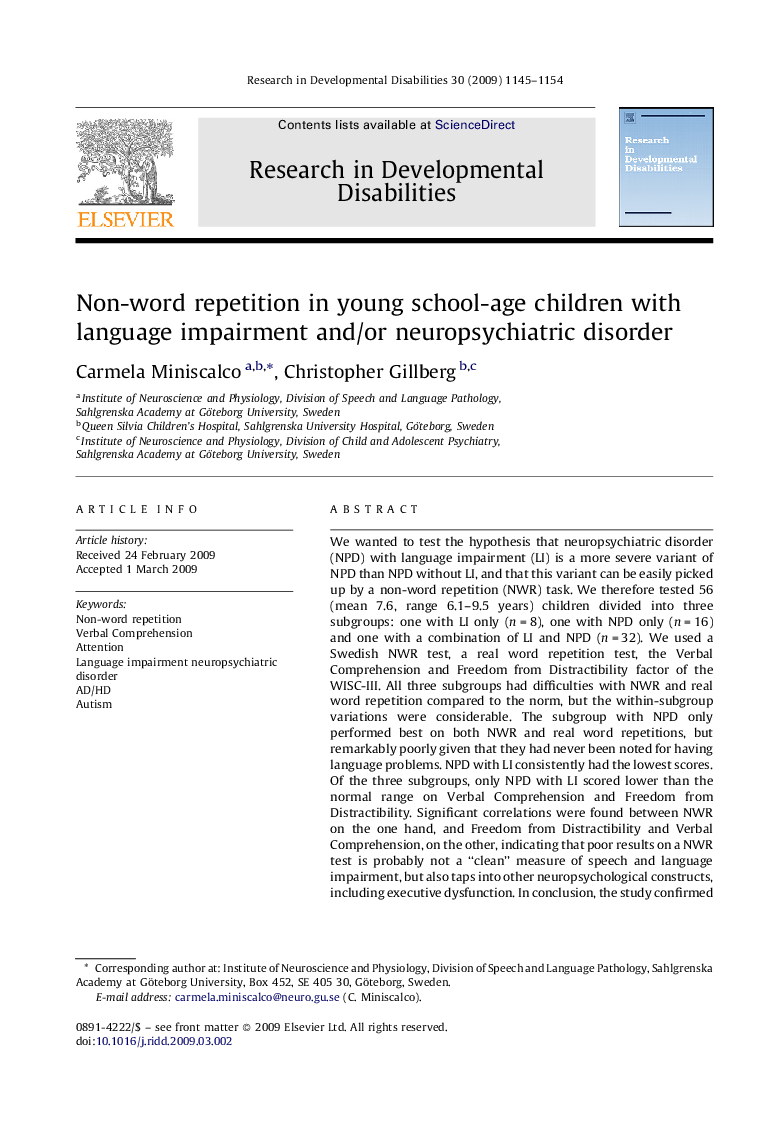| Article ID | Journal | Published Year | Pages | File Type |
|---|---|---|---|---|
| 371998 | Research in Developmental Disabilities | 2009 | 10 Pages |
We wanted to test the hypothesis that neuropsychiatric disorder (NPD) with language impairment (LI) is a more severe variant of NPD than NPD without LI, and that this variant can be easily picked up by a non-word repetition (NWR) task. We therefore tested 56 (mean 7.6, range 6.1–9.5 years) children divided into three subgroups: one with LI only (n = 8), one with NPD only (n = 16) and one with a combination of LI and NPD (n = 32). We used a Swedish NWR test, a real word repetition test, the Verbal Comprehension and Freedom from Distractibility factor of the WISC-III. All three subgroups had difficulties with NWR and real word repetition compared to the norm, but the within-subgroup variations were considerable. The subgroup with NPD only performed best on both NWR and real word repetitions, but remarkably poorly given that they had never been noted for having language problems. NPD with LI consistently had the lowest scores. Of the three subgroups, only NPD with LI scored lower than the normal range on Verbal Comprehension and Freedom from Distractibility. Significant correlations were found between NWR on the one hand, and Freedom from Distractibility and Verbal Comprehension, on the other, indicating that poor results on a NWR test is probably not a “clean” measure of speech and language impairment, but also taps into other neuropsychological constructs, including executive dysfunction. In conclusion, the study confirmed the hypothesis that NPD with LI constitutes a more severe variant of NPD, and that this variant can easily be picked up by a quick and easy NWR screening test.
